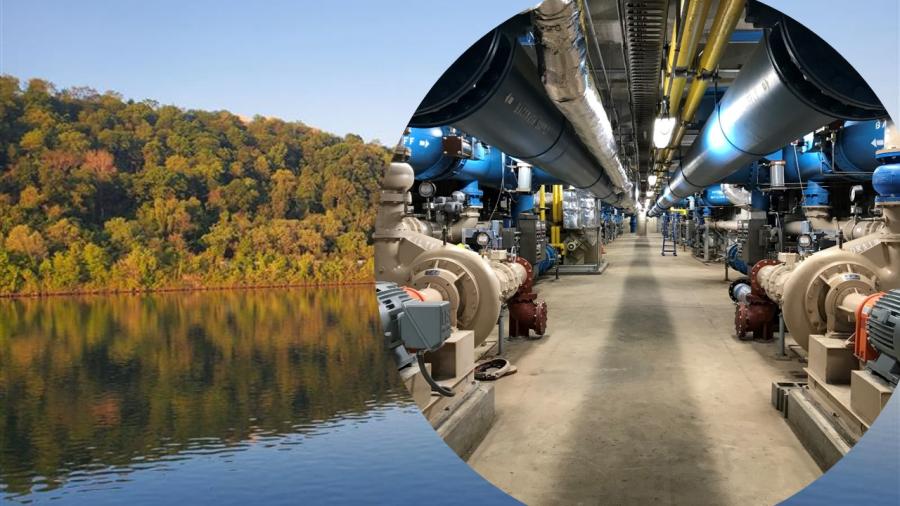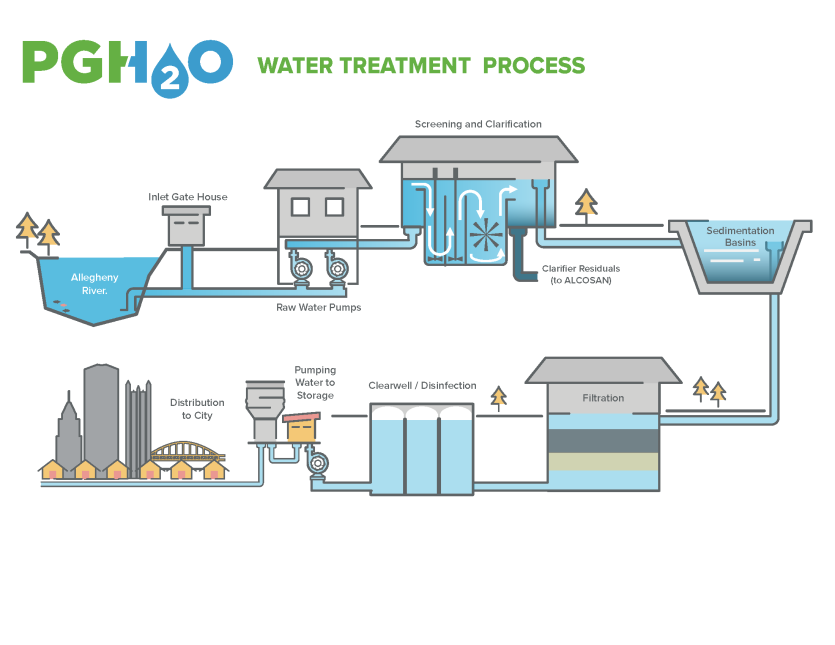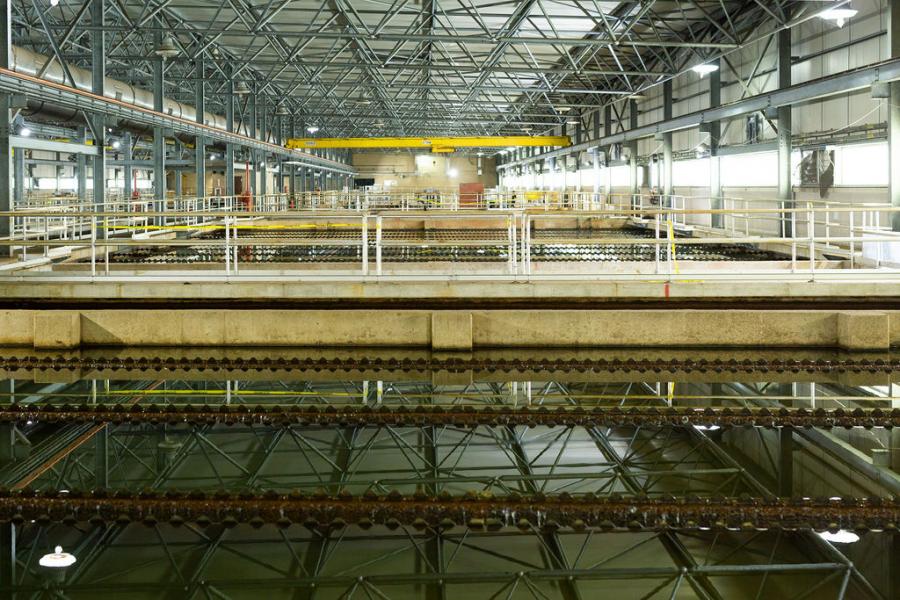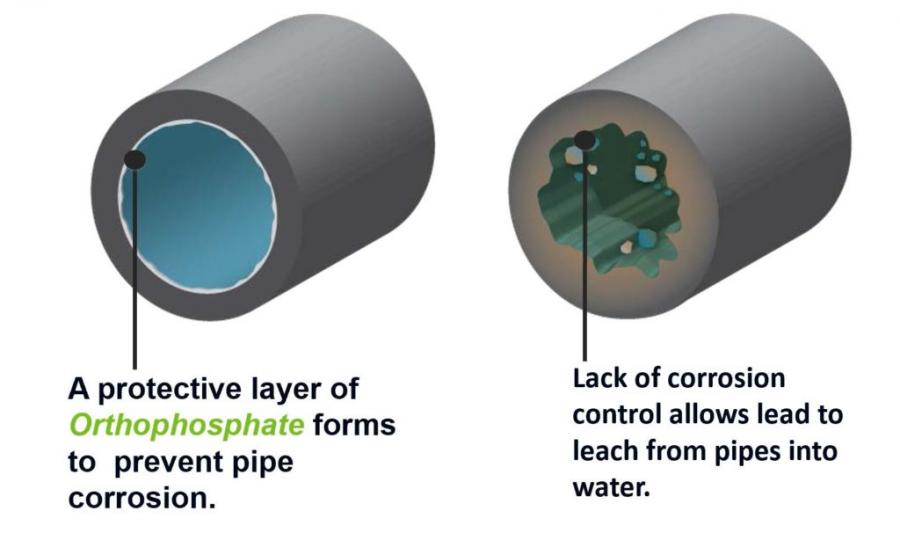The Pittsburgh Water and Sewer Authority provides service to more than 500,000 customers throughout the City of Pittsburgh and surrounding areas. We are the largest combined water and sewer authority in Pennsylvania producing an average of 65 million gallons of water daily and providing drinking water to the majority of Pittsburgh.
Ensuring the safe and reliable delivery of drinking water is our top priority. Our dedicated staff at the water treatment plant and in our lab are constantly monitoring and measuring the quality of our drinking water to ensure that it meets all state and federal drinking water requirements.
Learn about our Water Treatment Process
Is My Drinking Water Safe?
Our new fact sheet, Is My Drinking Water Safe?, provides a snapshot of our water treatment process and explains the rigorous monitoring and testing procedures we follow to ensure your drinking water is of the highest quality.
A closer look at our treatment process and water quality
Annual Drinking Water Quality Reports

We are proud to release our 2023 Consumer Confidence Report. Our drinking water customers can have confidence in the safety and security of their water and rest assured that we are providing Pittsburgh residents and businesses with the highest quality water.
To ensure your drinking water is of the safest and highest quality, PWSA diligently tests for pesticides, herbicides, and other impurities. This report provides customers with detailed explanations of the contaminants we test for and the processes we use to reduce and remove them from the water that flows into your home.
We encourage PWSA customers to read our 2023 Annual Drinking Water Quality Report in order to learn more about where their water comes from, how it’s treated, and how we continue to monitor and improve our water systems over time. If you have questions, please call Customer Service at 412-255-2423 (press 1).
Use the links below to review our most current and past Annual Drinking Water Quality Reports:
2023 Annual Drinking Water Quality Report
2022 Annual Drinking Water Quality Report
2021 Annual Drinking Water Quality Report
2020 Annual Drinking Water Quality Report
2019 Annual Drinking Water Quality Report
Water Quality FAQ

To drive a greater understanding of our water quality and treatment work, we compiled these responses to Frequently Asked Questions from our customers regarding water quality and treatment.
Water Treatment Process

The Allegheny River is the source of our drinking water. Once we draw water from the river, it processes through the Water Treatment Plant before arriving at your tap as drinking water. We produce approximately 65 - 75 million gallons of water every day, and it can take up to three days for the water to complete the treatment process.
Once treatment is finished, the water enters the distribution system. Through a complex network, water is pumped to reservoirs and tanks that store treated drinking water. As it leaves these storage facilities, gravity creates pressure to push water through miles of pipes to your home or business.
Tour Our Water Treatment Plant

We are offering a limited number of pre-scheduled tours. To inquire about tours, please contact us.
Our water treatment plant is located at:
PWSA Water Treatment Plant
900 Freeport Road*
Pittsburgh, PA 15238
*make sure not to confuse with Freeport Rd. Brackenridge, PA 15104
Treatment Plant is across from Waterworks Plaza in Aspinwall.
Lead Control and Results

We conduct compliance testing for lead using the methodology prescribed by the Pennsylvania Department of Environmental Protection and Environmental Protection Agency guidelines. Samples are collected from worst-case scenario homes that were verified to have lead service lines or plumbing. Please visit lead.pgh2o.com to review lead test results dating back to 2004.
In April of 2019, we began using orthophosphate to reduce lead levels in tap water.
Orthophosphate is a food-grade additive that forms a protective layer inside of lead service lines, creating a barrier between the lead pipes and the water flowing through them. It is approved by the Environmental Protection Agency (EPA) and used in water systems across the world, including sections of the City of Pittsburgh served by Pennsylvania American Water Company.
A year-long study found orthophosphate to be more effective at reducing corrosion than our previous treatment method using soda ash and lime. The Pennsylvania Department of Environmental Protection (PA DEP) agreed with the study’s findings and approved corrosion control upgrade to orthophosphate.
We built four new facilities to add orthophosphate to the water distribution system after it leaves the Water Treatment Plant. The longer orthophosphate is present in the drinking water system; it becomes more effective at reducing lead levels. Early testing results indicate that our addition of orthophosphate is an effective method to reduce lead levels.
Per- and Polyfluoroalkyl Substances (PFAS)
Visit our PFAS and Your Water page to learn more about:
- Our PFAS monitoring practices and testing results
- Our commitment to safe drinking water
- Actions you can take to reduce your exposure
- More PFAS learning resources
Water Infrastructure
Visit our Water page to learn about our drinking water system and the improvements we are making to ensure the delivery of safe, reliable water for future generations.
